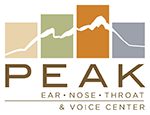[vc_row][vc_column][vc_column_text]Difficulty in breathing, a feeling of choking, tightness in the throat or chest, and wheezing are all familiar symptoms of asthma, but when taking asthma medications won’t ease these symptoms, then you might be experiencing a different condition. You might be suffering from Vocal Cord Dysfunction.
Vocal Cord Dysfunction (VCD): A Quick Look
The vocal cords, or the folds of membrane within the larynx, regulate the flow of air into the throat and lungs. They also close and vibrate, producing sounds whenever you talk.
Vocal Cord Dysfunction (VCD), also known as Paradoxical Vocal Fold Movement, is a condition caused by the abnormal closing or tightening of the vocal cords, making it difficult to breathe in and out. Some of the common symptoms of VCD include the following:
- Troubled breathing or shortness of breath
- Chronic coughing or clearing of throat
- High-pitched, wheezing sound or stridor
- Voice changes or inability to speak
- Voice hoarseness
- Noisy inhalation
Vocal cord dysfunction may be triggered by many factors, including exercise, stress, anxiety, and environmental irritants, such as strong odors and perfume, tobacco and cigarette smoke, acid reflux, and respiratory infections. In addition, VCD can coexist with other respiratory diseases which affect the upper airways, making the detection and management of VCD challenging.
Attacks may be episodic and have an abrupt onset. If you have VCD, you can expect recurrent emergency consultations or hospital confinement.
Differentiating between VCD and Asthma
Because of the similarities in symptoms and triggers, VCD is often confused with asthma. However, VCD is not an allergic reaction in the immune system nor does it involve the lower respiratory tract. Going to a voice clinic for consultation is recommended. Doctors specializing laryngology, a subspecialty of ENT focusing on voice and airway disorders, may consider that a patient has VCD instead of asthma if the following are present:
- Breathing becomes more difficult when symptoms flare up
- Asthma medications won’t provide relief
- Pulmonary function tests or other tests for asthma yield normal results or mild changes
Diagnosing VCD
To diagnose VCD, a review of a patient’s medical history and special laboratory tests need to be done.
Medical History
Doctors will discuss the onset of symptoms, regularity of attacks, voice difficulties, and the existence of other laryngeal symptoms.
Laryngoscopy
Laryngoscopy is conducted while the patient is experiencing VCD symptoms. Doctors will be able to see vocal cord and laryngeal muscle movements, helping them determine what’s causing the VCD.
Spirometry
Spirometry is a clinical diagnostic tool that can help differentiate between a true asthma condition and possible VCD diagnosis.
Treatment Options for VCD
Vocal cord dysfunction may be treated through breathing exercises and voice therapy. Voice or speech therapy sessions include activities and exercises that will help strengthen the vocal cords, improve breath control, prevent muscle tension, and protect the airway while swallowing. Other treatment options for VCD include botulism toxin (botox) injections, tracheostomy, and ipratropium bromide inhalers to prevent VCD attacks resulting from exercise. If a VCD patient has asthma, asthma medications may also be helpful.
Voice Specialists in Denver
Vocal cord dysfunction may be difficult to detect. What you may think are symptoms of an asthma attack may be the early signs of VCD. At Peak ENT and Voice Center, you may consult one of our trained laryngologists to explore your treatment options.
Contact us today and book an appointment in our Broomfield, Brighton, or Golden clinic.[/vc_column_text][/vc_column][/vc_row]

